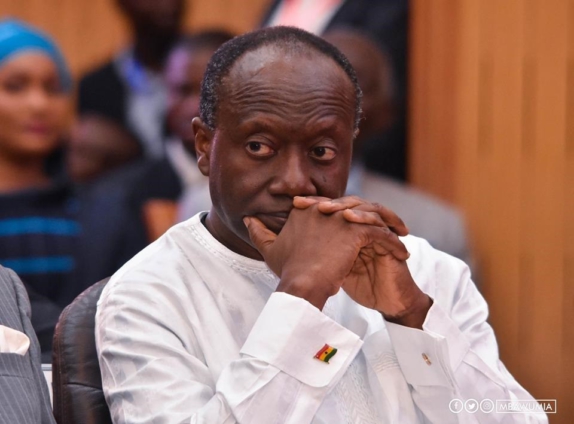Government will run a tight, low-spending budget for this year in order to reduce the pressures on the economy as a result of covid-19 pandemic, according to Databank Research 2020 Review and 2021 outlook Report.
This will however deprive spending to critical sectors of the economy such as schools, hospitals and other infrastructure.
Secondly, institutions or contractors that get big businesses from government might have to rewrite their notes.
But it is a necessary evil because of the rising debt and expenditure, which if not checked could throw away gains chalked by the economy.
At the end of September 2020, the overall budget deficit widened to 9.0% of GDP, 0.1% higher than the target and more than two times the level for the same period in 2019.
After three consecutive years of primary surpluses, the primary balance also switched into a deficit of 4.1% in nine months of 2020. This contributed to a faster growth in the public debt stock to GH¢273.8 billion (71% of GDP) as at September 2020.
“We believe fiscal consolidation is inevitable in 2021 as the public debt ratio has crossed the maximum early warning sustainability threshold of 70% for market access countries in 2020. We forecast a compression in the overall budget deficit to between 8.10% – 9.10% by full year-2021 (midpoint: 8.6%}”, Databank said.
“The legislative limit of a 5% deficit remains suspended to support a gradual withdrawal of fiscal support for economic recovery. Against the backdrop of a health crisis and economic slowdown which requires continued policy support to recover, the authorities have rightly triggered Section 3 (1) of the Financial Responsibility Act to suspend the fiscal rule. We believe the fiscal rule would remain suspended over the next 2 – 3 years as the deficit contracts steadily to below 5.0% over time”, it added.
It therefore forecast a compression in the overall budget deficit to between 8.10% and 9.10% this year.
Coronavirus shocks undermined commitment to financial discipline in 2020
Prior to the COVID-19 pandemic, the key risk to Ghana’s 2020 fiscal operations was the expenditure leading up to the December general elections.
This was evident in the original 2020 fiscal deficit target of GH¢18.9 billion (4.7% of GDP), below the 5.0% limit imposed by the Financial Responsibility Act.
However, the fiscal costs of the COVID-19 pandemic imposed an extra financing gap of GH¢25.3 billion (6.6% of GDP). This comprised of revenue shortfalls of GH¢13.4 billion (3.5% of GDP) and additional spending of GH¢11.8 billion (3.1% of GDP).
Latest Stories
-
PPA Clarification: The dark side of the World Bank’s ‘giveaways’ in Ghana by Bright Simons
23 mins -
Blinken says China helping fuel Russian threat to Ukraine
1 hour -
MHA declares May as Purple Month for Mental Health Awareness
1 hour -
WAEC arrests former headmaster over illegal students registration
2 hours -
MeToo founder Tarana Burke defiant after Harvey Weinstein ruling
2 hours -
Be alert, insist on decent messages – Dwumfour tells media
2 hours -
Father jailed 10 years for burning daughter’s genitals with hot cutlasses
2 hours -
I aim to help Ghana produce world-class athletes – Asamoah Gyan
2 hours -
Ashanti Regional Minister alleges sabotage in electricity supply
2 hours -
2024 Elections: Dampare urges Ghanaians to prioritise patriotism and display maturity
3 hours -
‘Let it rot’ campaign hits fish prices in Egypt
3 hours -
Otumfuo chalks 25 years on Golden Stool today
3 hours -
Saudi could get first Miss Universe contestant this year
3 hours -
Ghana Shippers’ Authority initiates steps to sign Service Level Agreements with stakeholders
3 hours -
Fuse ODG supports rising artiste, Fred Kobby, with funds for music video
3 hours

